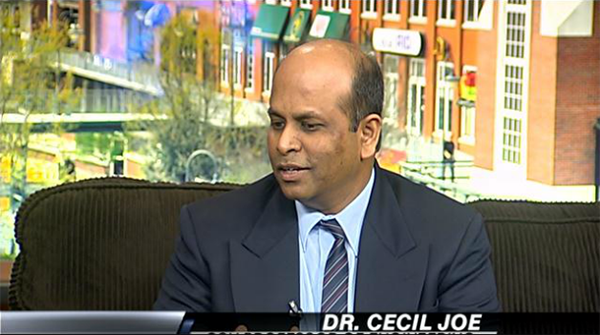OSU using virtual reality to help kids with autism
Thursday, November 21, 2013
Posted: Nov 19, 2013 3:10 PM CST
Updated: Nov 19, 2013 9:15 PM CST
By: Christine VanTimmeren, Primetime Reporter - bio | email
STILLWATER - For children on the autism spectrum, learning can be extremely difficult. Traditional classroom methods aren't always effective and can cause frustration and alienation. But a group of researchers at OSU hope to change that using virtual reality.
Scientific concepts are often hard for children with autism to grasp if all they have is a textbook. But if teachers could combine students love for things like computer games and virtual reality with classroom study, researchers think the capacity for learning is endless.
Standing in a small research room at OSU, eight year old Joshua Dillin yells out planet names as he delves deeper into the intricacies of our solar system. To Joshua, this is just play, but to OSU professor of engineering Dr. Cecil Joe, this is life-changing research using virtual reality.
"When you use virtual reality to teach students concepts, they seem to grasp this a lot better," said Dr. Joe.
Especially students like Joshua who have autism. Dr. Joe believes virtual reality games will change the way children with autism learn. It's a theory he and his students at OSU are testing and Joshua is one of the test subjects.
"I feel like it boosts his self confidence and it makes him feel like he's really accomplishing something," said Joshua's mom Rachel Dillin.
Dillin says she's already seen a change in her son, and is excited about what this means for his future.
"This is giving him a nice early exposure to be able to continue on what is most likely going to be a career path option for him," she said.
"It will help me learn more science," said Joshua.
Using special 3-D glasses and sensors that follow his movements, Joshua can explore different computer programmed environments. The 3-D image of the solar system, for instance, helps Joshua better understand how the planets relate to one another. Another computer game is able to simulate density, an extremely difficult concept that comes alive with hands-on games.
Dr. Mary Sweet-Darter is a professor of psychology at UCO, and is also involved in the study. She hopes this technology will expand and help children with autism learn concepts beyond just science.
"If we can teach them information by this technology, the next step would be to provide them with an avitar that would be their coach that could teach them social skills," Dr. Sweet-Darter said.
Even though the testing is happening at OSU right now, Dr. Joe hopes to find schools willing to test out the technology. At no cost, Dr. Joe will provide schools with all of the equipment needed and teach them how to use it.
"If we can build a program, the teachers can go and change the content specifically from grade one to maybe grade 5," Dr. Joe said.
Dr. Joe says when his college engineering students used virtual reality, grades shot up by 30%. He can only imagine how much greater the impact would be for younger generations.
"We're just not tapping into the beautiful skill that these children bring to our environment, to our country, to our future," said Dr. Sweet-Darter.
If you are interested in being a part of the free study or if you are a teacher who wants this program in your classroom, you can email Dr. Joe at: j.cecil@okstate.edu.

